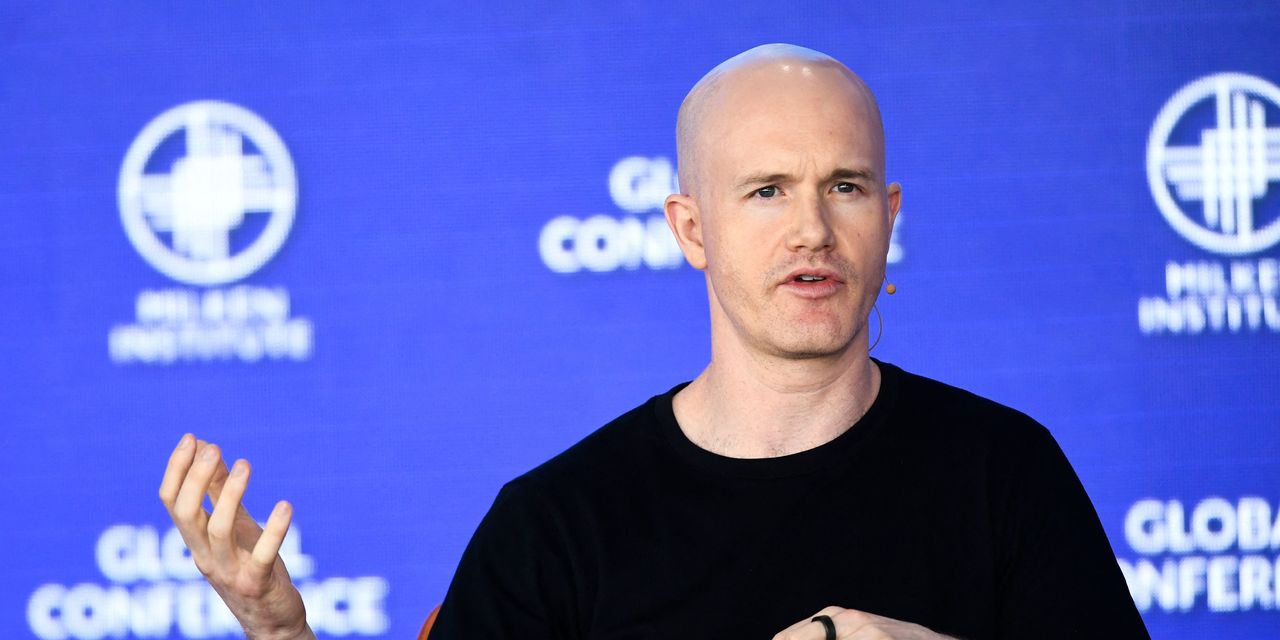The cryptocurrency market has had some recent turbulence. That might make it tempting for policy makers to write it off as an unstable asset class. But they’d be missing the bigger picture. Failing to see that crypto is about much more than individual transactions risks America’s time-honored role as the global financial leader and an innovation hub.
We and others in the industry have been asking policy makers and regulators to give us the regulatory clarity needed to ensure consumer protection and realize the promise of crypto. But instead of robust new rules that would help these efforts, we’re getting threats of enforcement action. By enforcing restrictive policies, the U.S. is inadvertently driving crypto-innovation offshore. That shift will compromise America’s legacy of pioneering technological advancements, and weaken our national security posture.
“ The technologically driven financial system of the 20th century helped make it the American Century.”
Cryptographic blockchains aren’t financial services; they are a transformative technology that can revolutionize a wide array of sectors, of which financial services is just one example. Every day, millions of people across the globe use these technologies to streamline their interactions with the traditional financial system. They facilitate crossborder payments, offer protection against inflation, reduce fees and wait times, and democratize access to financial services in regions where equal access isn’t guaranteed. We’re now even seeing these blockchains serve as a platform for creatives to monetize their work in perpetuity, as opposed to seeing the value of their work exploited on secondary markets.
Currency has always embodied innovation. That’s been true from the earliest coins as physical stores of value, which transitioned us from bartering to commerce, to the advent of portable paper currency that bolstered lending and investments. The technologically driven financial system of the 20th century helped make it the American Century. The U.S. dollar has anchored the global economic system since 1944, and the network technologies born from the visionary launch of the Defense Advanced Research Projects Agency in 1958 solidified and expanded the dollar’s influence. The role of the U.S. dollar as the global reserve currency confers innumerable soft and hard power benefits.
America’s public investments underscored that the nation driving innovation of the global financial system’s rails is best positioned to safeguard its people’s economic interests, protect its national interests, and propagate its values. Now, we face a new threat.
Today, the U.S. and other democratic nations are up against digital systems promoted by an ambitious adversary, China. Two Chinese tech behemoths, Alipay and Tencent, offer integrated payment systems with direct, instant access to an array of services. The Chinese Communist Party is promoting these powerful, rapidly scaling platforms worldwide through its Belt and Road Initiatives, with its social credit system baked in. And with the recent launch of its digital yuan, China aims to directly challenge the U.S. dollar and its role in global commerce. Given these moves and China’s strategy to leverage financial technology to project its own national interests, it should come as no surprise that Hong Kong is positioning itself as a global crypto hub.
But it’s not only China that can see the possibilities. Crypto, like the internet before it, has the potential to modernize finance and numerous other sectors, from supply chains to social media, by offering a faster, cheaper, more private, and accessible platform. It’s already underway. Recognizing this, traditional financial capitals including the U.K., United Arab Emirates, Brazil, Japan, the European Union, Australia, and Singapore, are also vying to become crypto hubs.
The nexus between financial technologies and democratic values is integral to America’s identity. It’s why I decided to base Coinbase in the U.S.
“If we fall short today, the next generation of Americans will pay the price.”
Today, four in five Americans feel the current financial system doesn’t serve their interests; 70% believe their children will be worse off. This dissatisfaction coincides with our financial infrastructure nearing technological obsolescence, heightening the risk of America ceding its influence.
Smart—and bespoke—regulation in the 1990s and early 2000s enabled the U.S. to define the Internet Age. Just like then, now is the time for Congress to seize the historic opportunity presented by crypto, and pass comprehensive legislation that safeguards consumers and fosters innovation. Crypto has the potential to play a significant part in stimulating the American economy and promoting democratic values worldwide.
If we fall short today, the next generation of Americans will pay the price. We’re spending billions today to repatriate technologies like semiconductors and 5G infrastructure. We should learn from that mistake. Bringing crypto and blockchain innovation back to the U.S. in a decade from now will require a colossal and sustained effort that may not succeed. But we can save ourselves that struggle if cooler heads prevail and we work together. Let’s modernize our financial system and reaffirm our role as a global technology leader rather than abdicating it.
Brian Armstrong is the chief executive officer of Coinbase.
Read the full article here







